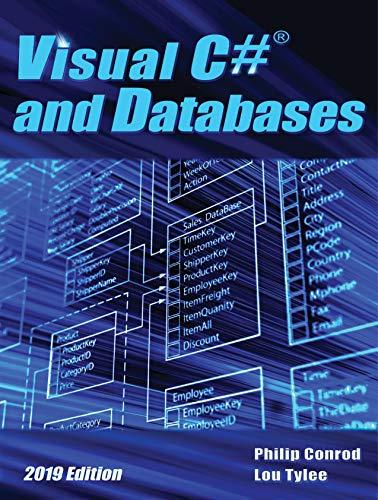Question
PLEASE SOLVE AS SOON AS POSSIBLE The following m files are given at the bottom for your convenience. Ybus.m Vbus.m ABCS_parameters.m NOTE: PLEASE PROVIDE COPYABLE
PLEASE SOLVE AS SOON AS POSSIBLE
The following m files are given at the bottom for your convenience.
Ybus.m
Vbus.m
ABCS_parameters.m
NOTE: PLEASE PROVIDE COPYABLE CODE




/**********************************************************
//Ybus.m function [ Y ] = ybus( zdata ) n1=zdata(:,1); nr = zdata(:,2); R=zdata(:,3); X=zdata(:,4); nbr=length(zdata(:,1)); nbus = max(max(n1),max(nr)); % branch impedance Z = R + j*X; % branch admittance y=ones(nbr,1)./Z; % initialize Y to zero Y=zeros(nbus,nbus); % formation of the off diagonal elements for k =1:nbr; if n1(k) > 0 & nr(k) > 0 Y(n1(k),nr(k)) = Y(n1(k),nr(k)) - y(k); Y(nr(k),n1(k)) = Y(n1(k),nr(k)); end end % formation of the diagonal elements for n = 1:nbus for k = 1:nbr if n1(k) == n | nr(k) ==n Y(n,n) = Y(n,n) + y(k); else,end end end
/**********************************************************
/**********************************************************
//Vbus.m
% From To R X z = [0 1 .5862 .4077; 0 2 1.1896 .8653; 1 2 .224 .768]; Y = ybus(z) Ibus = [30 + j*40; 20 + j*15] V=Y\Ibus
/**********************************************************
/**********************************************************
//ABCD_parameters.m
%Program to compute ABCD parameters of a transmission line %Define j j = sqrt(-1) L = input('length of line in kilometers= '); zmag = input('series-impedance magnitude (ohm/kilometer)'); zphase = input('series-impedance angle in degrees'); ymag=input('shunt-admittance magnitude (Siemens/kilometer)'); yphase=input('shunt-admittance angle in degrees'); %Convert degrees to radians zphaser = zphase*pi/180; yphaser = yphase*pi/180; realz= zmag*cos(zphaser); imagz = zmag*sin(zphaser); z=realz + j*imagz; realy=ymag*cos(yphaser); imagy=ymag*sin(yphaser); y=realy + j*imagy; Zc = sqrt(z/y); gamma=sqrt(z*y); gammaL = gamma*L; AR=cosh(gammaL); DR=AR; BR = Zc*sinh(gammaL); CR= sinh(gammaL)/Zc; ABCD=[AR BR; CR DR]; disp('The magnitude of A is') AMAG=abs(AR) disp('The angle of A is') ANGLEAR = angle(AR); ANGLEAD = ANGLEAR*180/pi disp('D=A') disp('The magnitude of B is') BMAG=abs(BR) disp('The angle of B is') ANGLEBR= angle(BR); ANGLEBD= ANGLEBR*180/pi disp('The magnitude of C is') CMAG = abs(CR) disp('The angle of C is') ANGLECR=angle(CR); ANGLECD = ANGLECR*180/pi
/**********************************************************
Refer to "MATLAB for Power Sistems" upload MATLAB programs: ybus.m Vus.m ABCD-parameters.m Problem One Run all programs above using same examples/data as given in "MATLAB for Power Systems" Consider Fiqure 1 Using sounce transformations, Figure 1 becones: I1=(1.2946j1.47313)AI2=(0.384619j1.92308)A Show how Figure 2 is obtained from Figure 1. Use MATLAB to solve for V1 and V2 by writing script file similar to "Vbus.m". Problem Three Use MATLAB ABCD-parameters.m A 3 transmission line is 200km long. For this line z=0.3514684.78/kmy=j4.2106/kmStep by Step Solution
There are 3 Steps involved in it
Step: 1

Get Instant Access to Expert-Tailored Solutions
See step-by-step solutions with expert insights and AI powered tools for academic success
Step: 2

Step: 3

Ace Your Homework with AI
Get the answers you need in no time with our AI-driven, step-by-step assistance
Get Started


